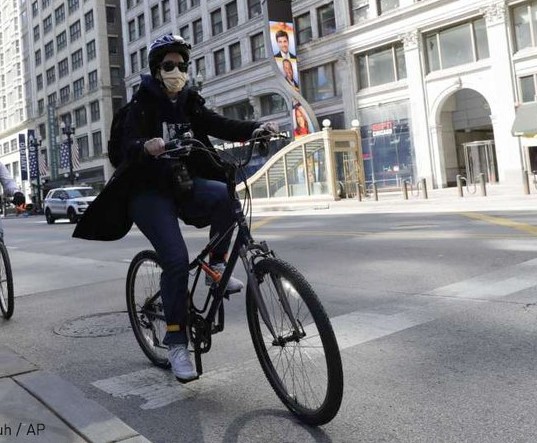Did You Know?
Biking during the pandemic

Biking has never been a neutral act. There are a lot of associations with riding a bike on the street and the power that comes with occupying that space.
During the past few months, biking has taken on another role because of the pandemic. It is now increasingly being seen as a safe alternative to public transit and other forms of mobility.
It has been a conflicting time for me as I process the world unfolding and how movement and our perception of movement shifts. I struggle with how to love biking and not perpetuate beliefs that may harm marginalized communities.
As more people take up bikes in my community, many seemingly for recreational purposes, I am adamant not to throw public transit under the—no pun intended—bus.
I believe in the transformational power of bikes. I have been riding for much of my life, recreationally and as a commuter. It is no secret that biking is a core part of my life and I am always deepening how I think about bikes fitting into social and racial justice.
I am motivated by the potential to bridge social inequities through movement, but it is important for me not to hold the physical bike as the answer as much as being one tool that can be used to address issues in our communities and to provide joy for people.
In doing transportation and bike advocacy work, working backwards is the way I come to more equitable lines of thinking. As I consider the existing social inequities in my community and in communities across the city, I ask, “How does transportation play a role?” Sometimes, transportation does not play a role. Other times, there is a clear connection.
It is in asking these questions where I think we can find more meaningful ways to incorporate our love of bikes. How can we use bikes as a tool for social change for the most vulnerable? If that is not the question we are asking, it is not a movement I want to be a part of.
The more I do this work, the more I try to operate through the lens that sees bikes as a tool in the larger spectrum of tools working towards mobility justice. I am not a bike advocate as much as I am an advocate for the safe and joyful movement of people. Bikes are a part of that vision, alongside public transit, walking, and, yes, driving.
Being committed to this space means developing a vision for what a collaborative, just movement looks like. I imagine affordable, high quality, frequent public transit for all. I imagine the capacity to bike regardless of where we live and cost and issues of safety no longer being barriers. I imagine how our work can acknowledge the deep-seated inequities and land use that led to dependency on driving for Black and Brown communities.
#BanCars is not a movement that is inclusive of the realities of the most marginalized. Our movement must always consider the social realities related to why people move the way they do. That is the only way we will start to dismantle those legacies and maybe one day the dependency on driving. Ahistorical thinking won’t get us there.
As we imagine a new world post-covid, I hope we can keep our attention focused on building transportation systems that are equitable, inclusive, and collaborative. Most importantly, I hope we continue to unravel how our love of bikes can advance the goals of social justice.
Photo courtesy of the Nam Y. Huh–AP
Make a Donation
Your tax-deductible donation supports the important work that Active Trans does throughout the region
